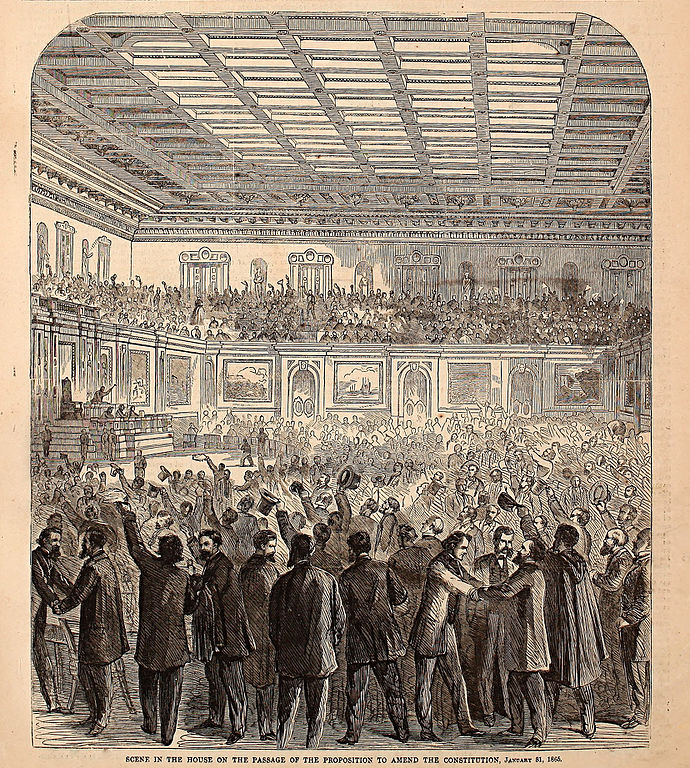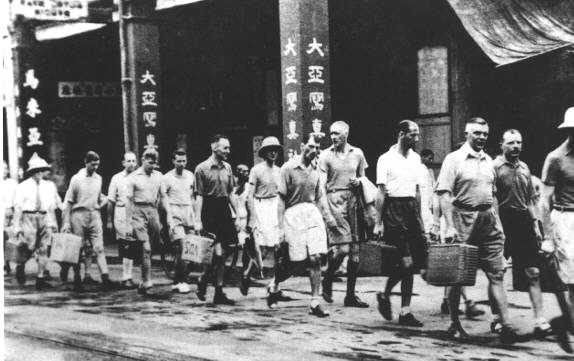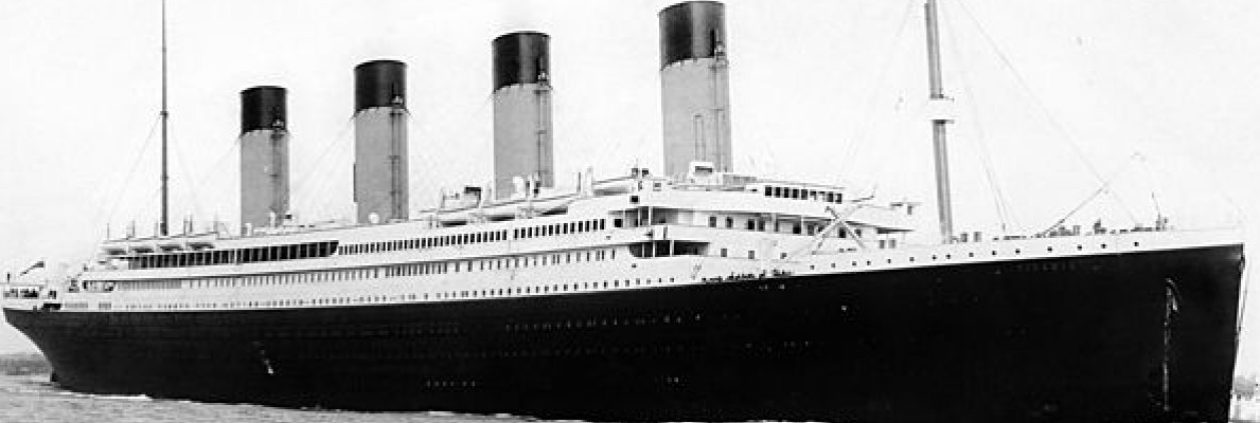Slavery Abolished in United States with Adoption of 13th Amendment

Harpers Weekly/Wikimedia Commons
Public Domain
When Georgia officially ratified the 13th Amendment to the U.S. Constitution on 6 December 1865, that made it the 27th state to ratify. In doing so, that meant the amendment had met the needed three-fourths requirement of state legislatures to needed to amend the federal constitution. The Thirteenth Amendment ended slavery in the United States.
Neither slavery nor involuntary servitude, except as a punishment for crime whereof the party shall have been duly convicted, shall exist within the United States, or any place subject to their jurisdiction.
Other states would ratify after this date so as to be put on record they opposed it as well. The last three after ratification were Delaware (1901), Kentucky (1976), and Mississippi (1995). In both Kentucky and Mississippi’s cases, they had rejected the amendment in 1865. So they revoted for it in 1976 and 1995 respectively. However, Mississippi failed to notify the U.S. archivist to officially record the vote. It was officially recorded in 2012.
With its ratification, slavery was formally ended in the U.S. and in all places (overseas territories etc.) where the U.S. had jurisdiction.
Sources:
“Thirteenth Amendment | Definition, Significance, and Facts.” Encyclopedia Britannica, 9 Nov. 2023, www.britannica.com/topic/Thirteenth-Amendment.
“13th Amendment – Simplified, Definition and Passed | HISTORY.” HISTORY, 9 Nov. 2009, www.history.com/topics/black-history/thirteenth-amendment.
=
Japanese Invade Hong Kong

Public Domain via Wikimedia Commons
On 18 Dec 1941, Japanese forces landed in Hong Kong and began a brutal assault on British forces. Prior to the invasion, Japanese forces had used bombing raids over the city hoping for capitulation. Japanese envoys unsuccessfully demanded the British Crown Colony surrender but its governor on 17 Dec 1941 declined to enter into discussions. When Japanese troops attacked and defeated a garrison of troops, they rounded up all the British soldiers and medical personnel and killed them brutally by bayonetting them to death. Seizing control of the water supplies, they turned off the water to the British and Chinese population of Hong Kong. Facing death by thirst, the British surrendered on Christmas Day.
Japan imposed martial law, which remained in place during the whole time it controlled Hong Kong. Approximately 7,000 British troops and civilians were kept in camps under appalling conditions. All functions of government were put under military control and executions of Chinese were common even for minor crimes with beheading the most common form. Banks were seized and even some bankers killed. The Japanese brought in their own banks and set up their own trading syndicates hoping to use Hong Kong as the British did to make money from overseas trade. Life was harsh under Chinese rule with food supplies for the population being limited and many dying of starvation. Medical facilities were limited, and some limited charities and social services were allowed to operate but had to rely on donations for the limited medical and charity services they could provide. Japanese language became compulsory along with Japanese textbooks in schools.
Hong Kong would remain under Japanese control until 30 August 1945 when Japan formally surrendered. General Takashi Sakai, who had been the military governor of Hong Kong since it was captured, was tried of war crimes, and executed in 1946.
Sources
“Japan Invades Hong Kong.” HISTORY, 16 Nov. 2009, www.history.com/this-day-in-history/japan-invades-hong-kong.
“Japanese Occupation of Hong Kong.” Wikipedia, 24 Nov. 2023, en.wikipedia.org/wiki/Japanese_occupation_of_Hong_Kong.
